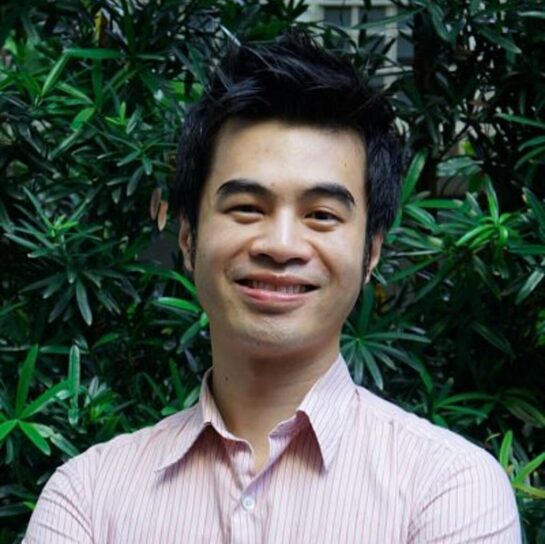An Interview With Chad Silverstein
We are starting a new interview series about the world of entrepreneurship beyond the classroom — a realm where theory meets grit, and education meets real-world challenges. We want to hear about critical business wisdom that often goes unspoken in academic settings. I had the honor of interviewing Alex Wong.
Alex Wong is the owner of Alex Wong Copywriting and a bestselling author with expertise in niches like Airbnb and dental marketing, self-publishing, and online dating. With a degree in psychology and advanced training from leading industry professionals, Alex brings a unique blend of skills to his work. Inspired by Bruce Lee, he leverages his diverse background and mastery of persuasive techniques to transform ideas into compelling narratives.
Thanks for being part of this series. Let’s jump in and focus on your early years. Can you share who was your biggest influence when you were young and provide specific examples of what you learned from them that helped shape who you’ve become and how you live your life today?
When I was younger, my biggest influence was definitely my dad. He came to Canada from Communist China in the 1980s without speaking any English and managed to build a life here, providing me with better opportunities than he had. He taught me the value of hard work, perseverance, and dedication, as well as the importance of saving money. I follow these principles daily, always striving to make him proud. He passed away earlier this year from cancer, and I am committed to living by the values he instilled in me.
Staying on the topic of influence, who has been your biggest catalyst more recently and what can you share that you’ve learned from them that led you to making changes in your life?
I don’t have a single person in mind since I’ve learned from many people at different stages of my life. I try to absorb the positive traits of others while avoiding their mistakes. I’m grateful to the many great people and friends who’ve provided me with opportunities to learn and grow my business. I often think about how inspiring it would be to have conversations with people like Elon Musk, the Dalai Lama, and Bruce Lee.
In this interview series, we aim to reveal what seasoned entrepreneurs wish they had known when they were starting out and capture what the textbooks and college professors left out.
Mistakes are invaluable. Can you name one specific mistake that you made early on, and learned the most from, but wish you’d been forewarned about?
One of the biggest lessons I learned was the importance of being cautious when considering partnerships. During the pandemic, my business faced significant challenges, which led me to explore new partnerships. I rushed into one out of fear, but our approaches and expectations were not aligned. This experience taught me the importance of thorough due diligence and the willingness to walk away from deals that don’t align with my values and objectives.
Is there a leadership myth you believed early on that you’ve since debunked through your real-world experience?
I used to believe that leaders always know exactly what they’re doing, but that’s not true. Leaders are human and make mistakes or feel uncertain at times. What sets them apart is their willingness to take the first step, make mistakes, and learn from them.
What’s the key operational insight you’ve gained since running your business that was never mentioned in any classroom?
Offer value to others without expecting anything in return. Most people are accustomed to consuming rather than providing. By finding ways to help others and make their lives easier, you stand out from the crowd and build stronger relationships.
Did college prepare you for scaling a business? What specifically was missing?
Definitely not! My journey from school to business was full of detours. In college, I studied animation, then sociology, and finally majored in psychology. While it exposed me to new ideas and people, it didn’t prepare me for the real world, let alone running a business. College focused on memorization and exams, with little emphasis on practical, real-world experience. I’ve retained only about 10% of what I learned, with most of my business knowledge coming from hands-on experience. More internships and real-world opportunities would have been invaluable.
Any unexpected challenges in team dynamics that your academic experience didn’t prepare you for? How did you handle it?
The biggest challenge has been dealing with people who fail to deliver results on time. I’m understanding and flexible, but if this becomes a pattern, it’s a problem. When this happens, I address the issue directly, offer solutions, and give them a chance to improve. If they can’t adapt, I let them go while keeping things professional and not personal.
Have you had to unlearn any widely-accepted business ‘wisdom’ in your journey? What was it and how did it affect your strategy?
Early on, I tried to do everything on my own to save money, which was a mistake. Although it’s understandable when starting out, I should have started hiring people sooner. Many talented individuals can do their jobs faster and better than I can, freeing up my time to focus on growing my business.

What’s your advice for new entrepreneurs? What are your “5 Things You Won’t Learn in College But Must Know to Succeed in Business”?
1. Embrace Mistakes: You won’t always know what you want or what to do, and that’s okay. School is structured, but in business, you’ll make many mistakes. It’s important to make them early, often, and learn from them. Be willing to take risks and push past your comfort zones.
2. Diversify Income Streams: The pandemic taught me the importance of having multiple income streams to mitigate risks. By diversifying my income sources, I was able to maintain financial stability despite a significant revenue decline. Never rely solely on one source of income.
3. Appreciate Small Wins: It’s easy to focus on what you lack, but it’s crucial to celebrate even the smallest achievements. Each year, I write down my accomplishments and set new goals, which helps me stay motivated and aligned with my bigger dreams.
4. Leverage Advantages Responsibly: As a second-generation Canadian, I’m aware of the privileges I’ve been afforded. I strive to use my skills and resources to create opportunities for myself and others, always mindful of the ethical considerations involved.
5. Prioritize Health: When starting out, I worked late into the night, and it took a toll on my health. No business is worth sacrificing your health and sanity. Outsource tasks and seek help to maintain balance in your life.
How do you ensure your team not just understands but embodies your business principles? Any techniques you wish you’d known earlier?
Trust and respect are the foundation of any successful team. I give new hires a chance with a small project, and if they deliver results, I continue working with them. If they overpromise and underdeliver, I address it directly and end the relationship if necessary. It’s essential to spend time finding good people, respecting them, and making them feel valued.
If we were sitting together two years from now, looking back at the past 24 months, what specifically has to happen for you personally and professionally, for you to be happy with your results?
Personally, I hope to feel less stressed and have eliminated most of the stresses from my life. Professionally, I’m interested in starting another website and business to help authors and anyone interested in self-publishing to become bestsellers and improve their success.
Looking back over the last two years, what key accomplishments make you satisfied with your progress?
My ability to adapt and be flexible in the face of challenges stands out. During COVID, my earnings fell by half, so I adapted by cutting expenses and finding new revenue streams. When my website traffic declined due to factors beyond my control, I focused on improving what I could. The key takeaway is to never rely on just one income source.
As someone with significant influence, what’s the one change you’d like to inspire that would benefit the most people?
I would like to inspire more compassion and understanding. The world feels increasingly divided, and I believe that by spending more time talking to people with different viewpoints, we can find common ground and work toward shared goals.
How can our readers keep up with your work?
You can follow my work at Alex Wong Copywriting.
I’ve also self-published several bestselling books, which you can find here:
Thank you so much for joining us! We wish you only success.
About the Interviewer: Chad Silverstein, a seasoned entrepreneur with over two decades of experience as the Founder and CEO of multiple companies. He launched Choice Recovery, Inc., a healthcare collection agency, while going to The Ohio State University, His team earned national recognition, twice being ranked as the #1 business to work for in Central Ohio. In 2018, Chad launched [re]start, a career development platform connecting thousands of individuals in collections with meaningful employment opportunities, He sold Choice Recovery on his 25th anniversary and in 2023, sold the majority interest in [re]start so he can focus his transition to Built to Lead as an Executive Leadership Coach. Learn more at www.chadsilverstein.com
Author Alex Wong Of Alex Wong Copywriting On 5 Things They Forgot To Mention In College was originally published in Authority Magazine on Medium, where people are continuing the conversation by highlighting and responding to this story.
